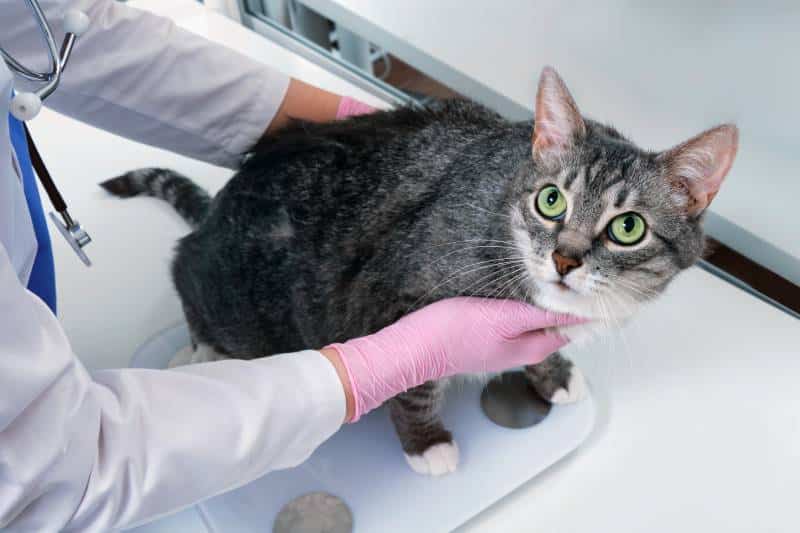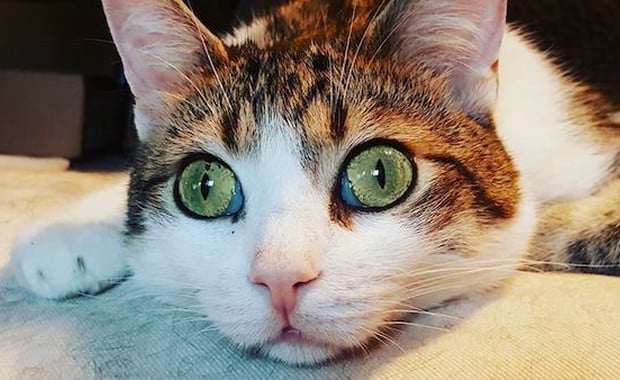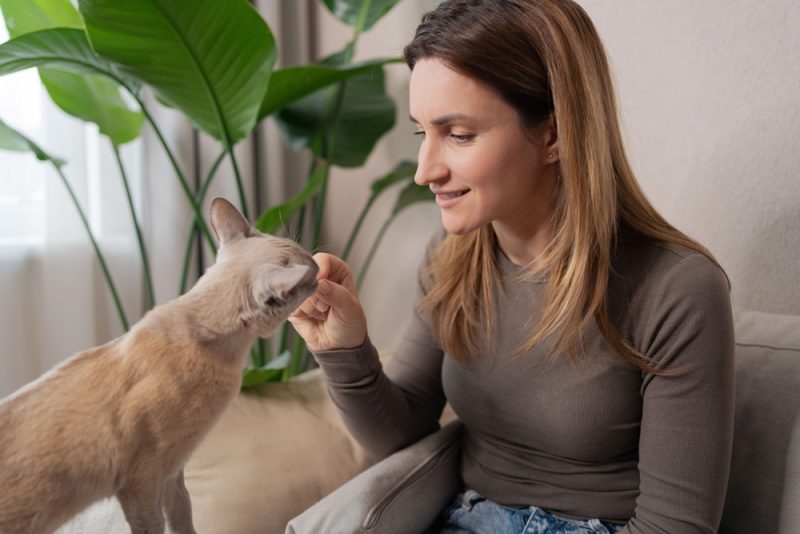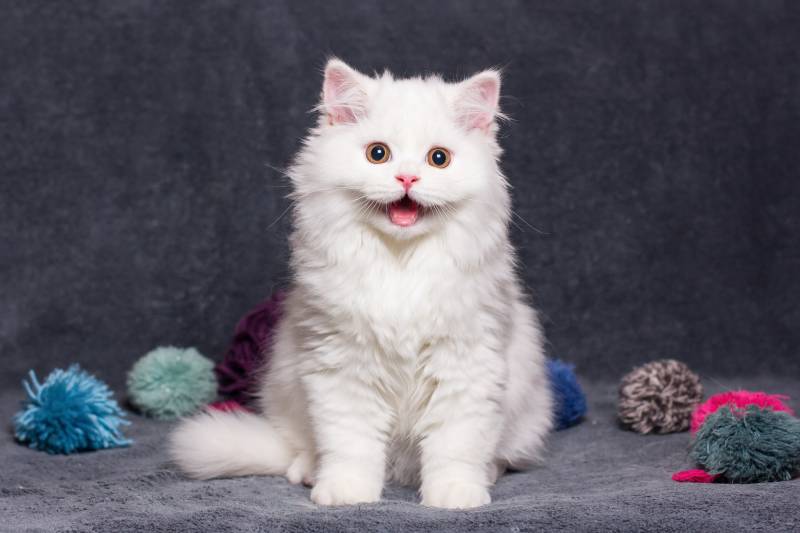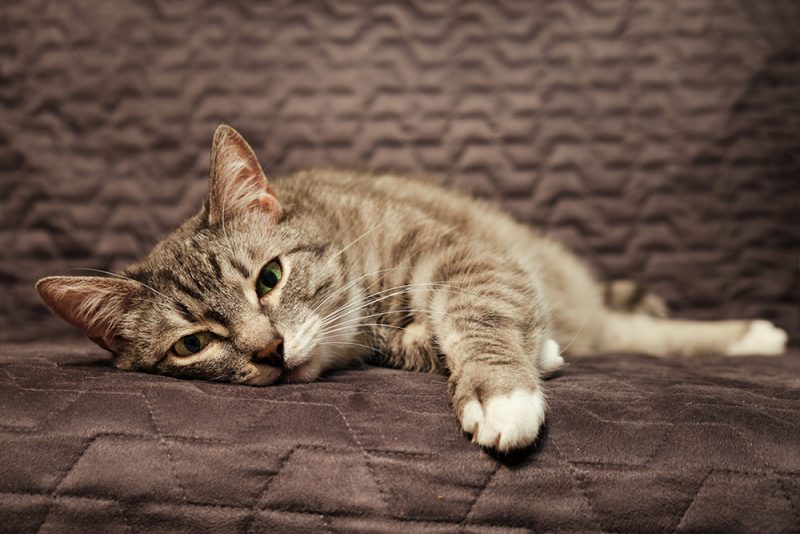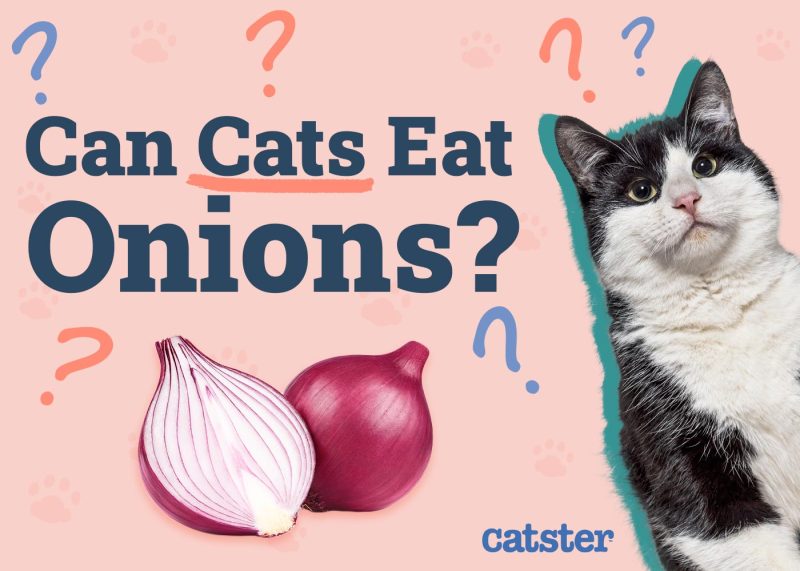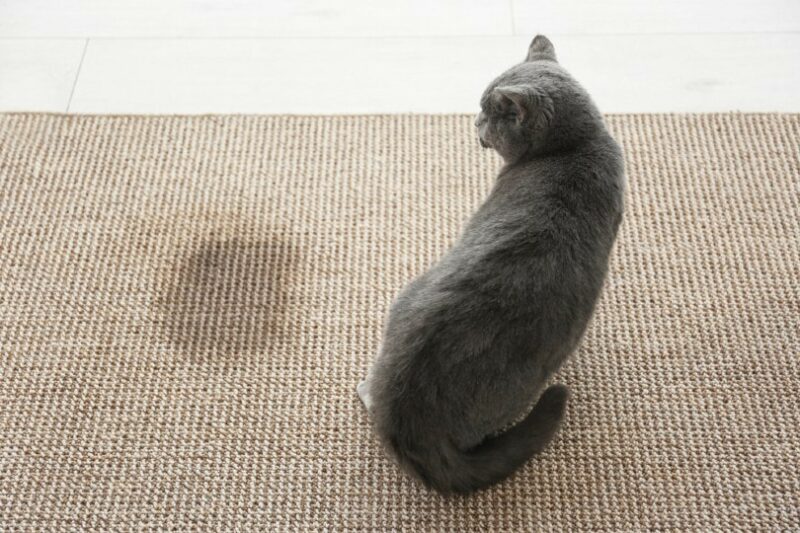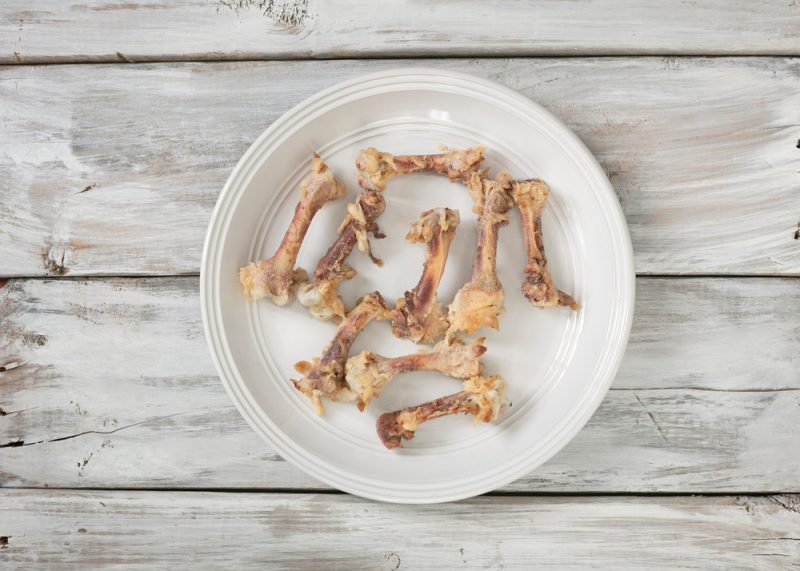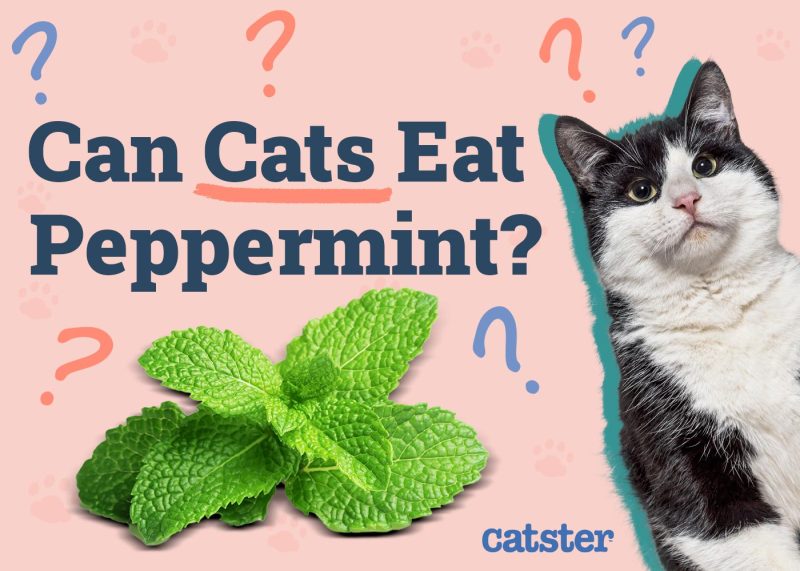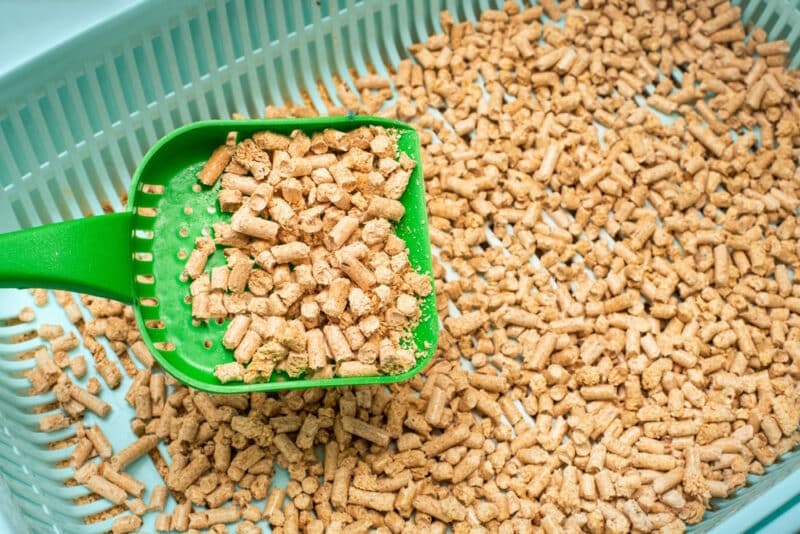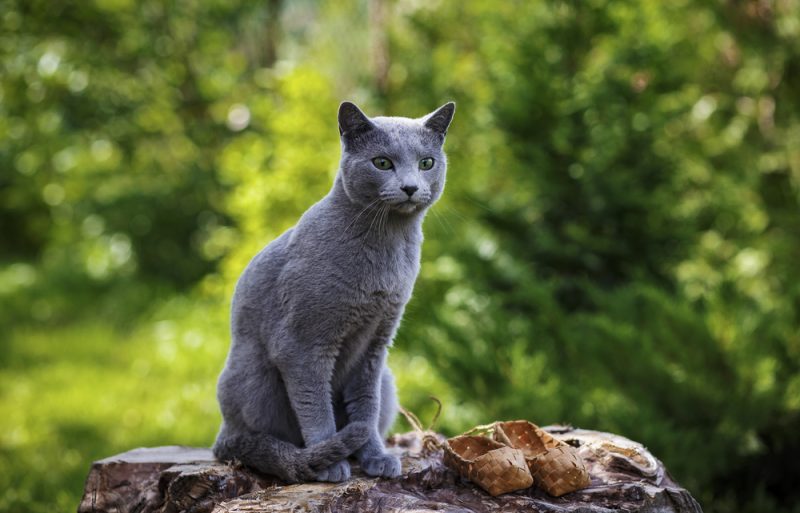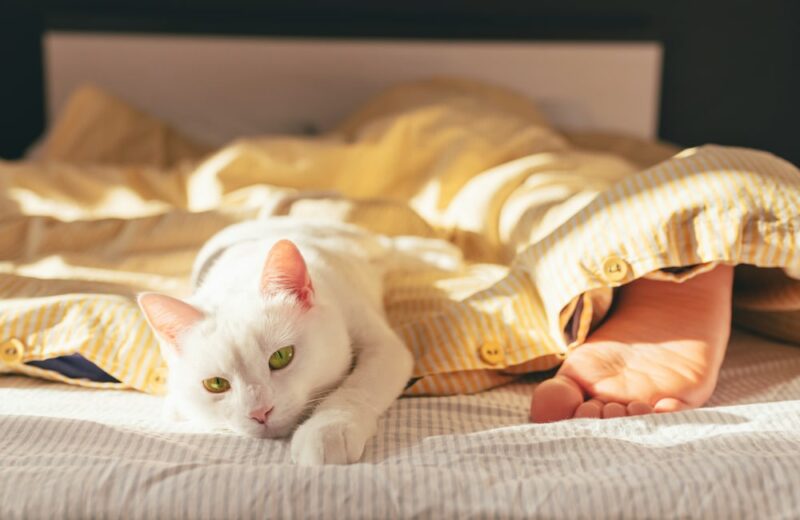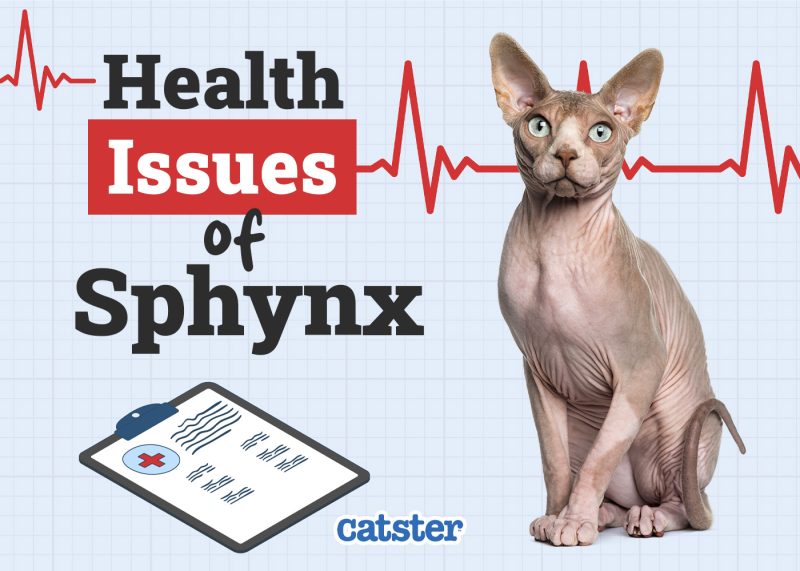In this article
View 3 More +Weight control is critical for your cat—and you! If you’ve ever tried to shed a few pounds, you know how challenging it can be. Temptation is everywhere, and it’s not too different for your pet. However, the secret to losing weight is the same: calories consumed must be lower than calories expended. The excess calories are stored as fat. That puts more strain on the animal’s cardiovascular system and can increase their risk of disease.
Several reasons can cause your kitty’s weight loss to stall. This may involve changeable lifestyle factors that you can alter, but others are beyond your control. Some even require veterinary intervention. We’ll consider all three, along with advice and tips for getting the scale moving again.

The Health Risks of Pet Obesity
You mustn’t give up if your pet isn’t losing weight. Roughly half of the felines seen by vets are overweight or obese. It’s not just about having a chubby cat; it also carries serious health implications that can adversely affect your kitty’s quality of life and lifespan.
- Urinary disease
- Chronic kidney disease
- Diabetes
- Asthma
- Liver disease
Of course, you want as much time with your pet as possible, and you certainly don’t want them to endure any avoidable stress or pain. That’s why it’s essential to take action and help them lose any extra pounds they may be carrying.
Body Condition and Weight Status
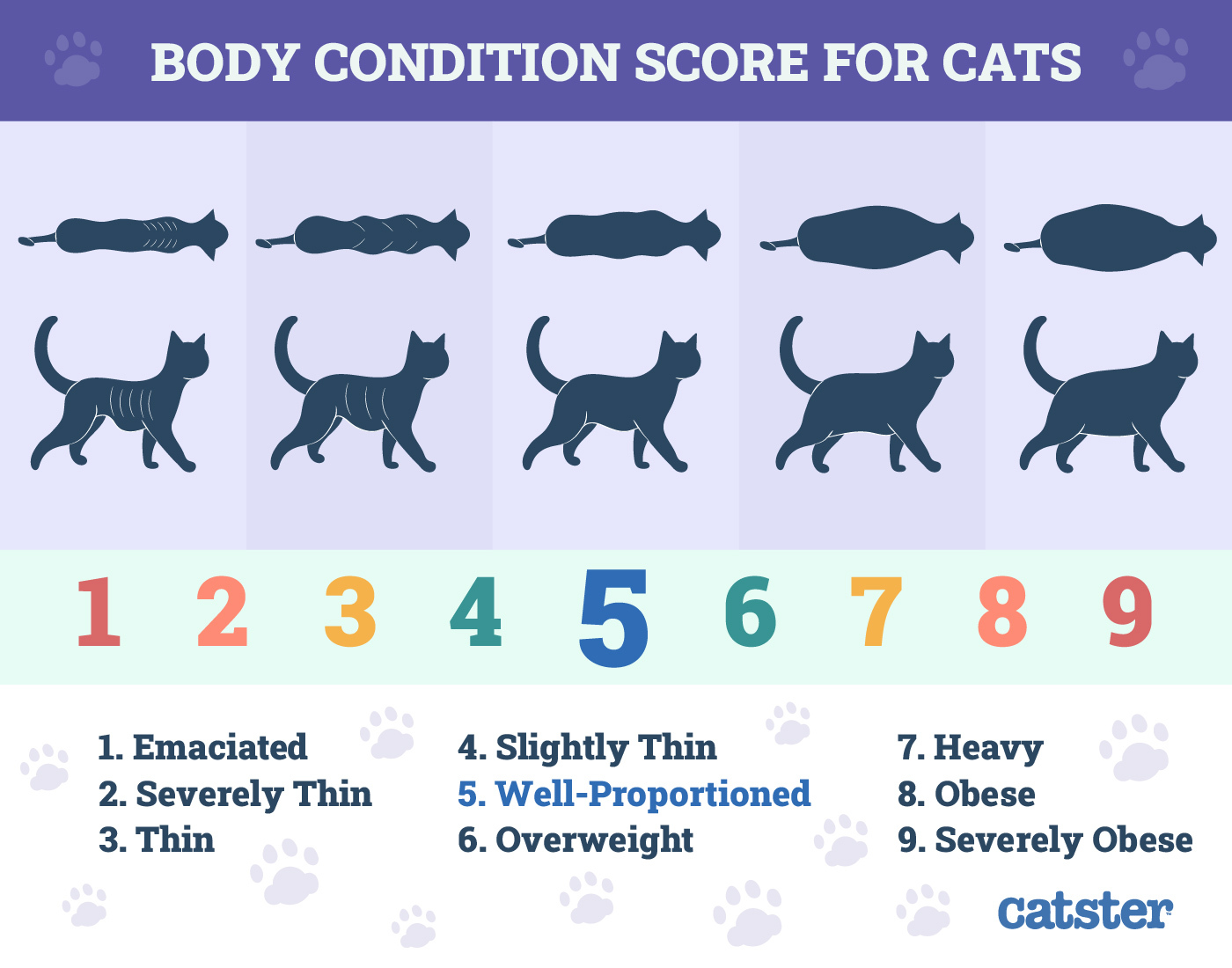
The first step in any weight management plan is determining your pet’s status with their body condition score (BCS). If you look at your cat’s profile and shape from overhead, you can get a reasonable assessment of their weight. Ideally, you should see a well-defined waist that isn’t obscured by a lot of fat. You should also be able to feel your pet’s ribs.
Don’t mistake the animal’s belly or primordial pouch for excess weight. This extra flap of skin is normal, even in big cats. Scientists theorize it is a carryover from our pets’ feline ancestors. While it may flop back and forth when your kitty runs, it shouldn’t be excessively large. On the flip side, your cat shouldn’t look emaciated or overly thin, either.
Your vet will likely mention your pet’s BCS during their annual exam if it’s an issue. They may, in turn, recommend a weight management plan with specific information about caloric intake, including treats. But suppose you’ve received this information and nothing seems to have changed. Why is your cat not losing weight?
Non-Medical Reasons
A vet’s weight-loss plan will likely include the number of calories your kitty should consume daily, with or without treats. The place to start is ensuring you’re following their recommendations to the letter. If it says ¾ cup, then it must be that amount. Remember that felines don’t need as many calories as people do because of the size differences. A 10-pound cat should only get 180–200 calories, so the excess adds up.
Portion control applies whether you feed your pet at set meal times or allow them to free-feed. The risk of the latter is simply filling the bowl and not knowing exactly what your cat is eating.
It’s also worth noting the treats, as they shouldn’t make up more than 10% of your kitty’s daily caloric intake. Treats contain calories, too. They are also not nutritionally complete and balanced like commercial diets. That’s not to say they’re bad; it’s just that they should supplement your pet’s diet and not form a significant portion of it.
If you’re following the instructions, you may have to play detective to find other possible reasons. One obvious reason for cats is counter-surfing. While pets typically learn the household rules, felines, by nature, are crepuscular or nocturnal, meaning they may be trying to sneak an extra snack when no one’s looking at night.
If you have kids, you should also ask them about feeding your kitty anything, whether it’s treats or table scraps. Even a few ounces can sabotage your cat’s diet plan. Make sure to question the little ones as well as the adults. Everyone must be on board with getting your cat to lose weight, and no one should be sneaking anything to your pet.
Activity and Enrichment
The calorie count we mentioned earlier applies to indoor pets. Presumably, they aren’t as active as animals with outdoor access. Less activity means fewer calories. It’s easier to make progress by cutting calories than making it up in exercise, as it is with people. Nevertheless, daily playtime can move the needle in the right direction.
We also recommend using interactive toys that challenge your cat mentally. You can even make a game of hiding treats to encourage them to hunt around the house for them. Providing enrichment with games and toys will improve their physical and mental well-being. It can distract them, so they’re not always so fixated on food. However, remember that the treats, should they be used, shouldn’t make up more than 10% of their diet and also shouldn’t exceed their recommended daily caloric intake while on their weight loss plan.
Reasons Beyond Your Control
Some other reasons for slow weight loss are beyond your control. Pets slow down as they age. They may also sleep more, which means less physical activity and calories burned. You should transition your kitty to a senior diet as they age, in consultation with a vet’s advice. The food is still nutritionally complete but contains fewer calories to prevent unhealthy weight gain.
Sometimes, breed-related factors are an issue. One study found that British Shorthair and Ragdolls were more likely to be overweight. Genetics and early upbringing may play a role in a pet’s propensity for weight gain. However, it’s not an insurmountable barrier.
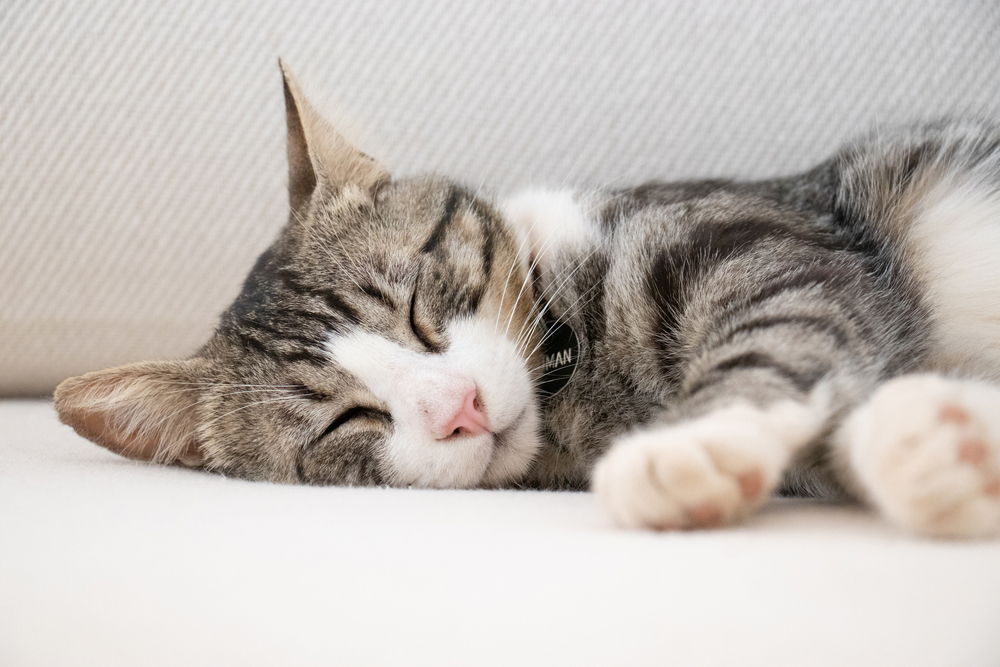
Medical Reasons
Medical reasons can also complicate weight loss in some pets. For example, neutered cats are more likely to become overweight if free-fed than intact cats. Hormonal changes with their altered state are behind some of these issues. We recommend discussing it with a vet to determine the best course of action.
The vet may recommend a diet change if there is a medical cause behind the weight issue. That may be enough to solve the problem. However, you should strive for a loss of 1–2% of your cat’s weight weekly. It’s imperative to go slowly. You should consider separating your pets during feeding time or putting the felines on the same diet to avoid setbacks. Microchip feeders can also be useful tools.
Behavioral problems may affect your pet’s weight in unexpected ways. Having more than one cat in the household may inadvertently trigger food aggression in one of the animals. They may resource guard or simply eat from the other pet’s bowl when they aren’t around to finish their meal.
One way to manage food aggression is to switch to small, frequent meals. A cat that feels sated throughout the day may be less likely to take more than their fair share. You can also try separating the animals at feeding time to curb this unwanted behavior. Feel free to discuss the issue with the vet if these steps don’t resolve the situation.
If you like to talk with a vet to clear out any other doubts you might have regarding this topic, you can consult one online.
Need veterinary advice but can't get to the clinic? Catster recommends PangoVet, our online veterinary service. Talk to a vet online and get the answers and advice you need for your cat without having to leave your living room — all at an affordable price!


Final Thoughts
Maintaining a healthy weight is vital for your cat’s well-being, so kudos for trying to get it under control! However, many factors can influence your success. Some are easy fixes, while others require a visit to the vet. If your efforts aren’t working, ensure everyone in the household follows the plan. It won’t work unless everyone participates. Remember that the reward is a healthy pet with a likelihood to live a longer life!
Featured Image Credit: Zhuravlev Andrey, Shutterstock
